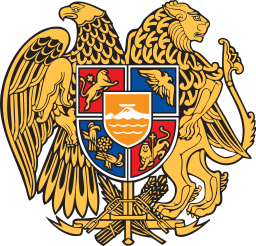In terms of solving the problems faced by agriculture and increasing competitiveness, the joint activity of business entities in agriculture is especially emphasized, particularly through formation of cooperatives.
The policy of promoting cooperation is one of important components of the state policy in the agrarian sector. This is evidenced by a number of guiding program documents underlying the state policy in the field of agriculture. Among these documents are the RA Government project approved by the RA Government Decree No.65-A dated February 8, 2019, the 2014-2025 strategy program on prospective development of the Republic of Armenia approved by the RA Government Decree No.442-N dated of March 27, 2014, and the 2020-2030 strategy of the main directions ensuring the economic development of the RA agricultural sector approved by the RA Government Decree No.1886-L dated December 19, 2019.
Legal and regulatory framework
Consumers’ cooperative (RA Law “On consumer cooperation”, Civil Code of the Republic of Armenia)
Agricultural cooperative (RA Law HO-190-N “On agricultural cooperatives”)
The procedure and requirements for maintaining the register of members of agricultural cooperatives (RA Government Decree No.1187-N dated November 18, 2016)
Information materials
“Agricultural cooperatives/“The benefits and charm of working together” booklet by ENPARD Armenia Technical Assistance programme
“Cooperative marketing” training manual
Currently, the country has about 499 agricultural and consumer cooperatives operating in the agricultural sector and having different agricultural orientations, of which 82 (16.4%) are agricultural and 417 (83.6%) are consumer cooperatives.
The main areas of activities of the cooperatives are: plant cultivation, animal breeding, mixed agriculture, fruit farming, vegetable farming, grain crops farming, milk collection and recruitment, beekeeping, provision of services through agricultural machinery, and pasture management.


The following are especially emphasized in this sector:
1․ The projects of state assistance implemented under the coordination of the RA Ministry of Economy, whereby more preferential conditions are set mainly for agricultural cooperatives. More detailed information on these projects can be found here.
Within the framework of the “Second measure for neutralization of the Coronavirus-induced economic impact” approved by the RA Government Decree No.356-L dated March 26, 2020, the interest rates on the loans provided by December 31, 2020, are fully subsidized by the RA Government, and beneficiaries are provided with loans at 0% interest rate. In order to partially neutralize the business entity’s insufficient level of the collateral and currency risk with regard to the loan, an opportunity of co-financing/joint obligation is envisaged at differentiated amounts within the range of 10-70%, depending on the purpose of the loan (leasing). A prerequisite for making use of the co-financing opportunity is the certificate issued to the cooperative’s president as a result of the latter’s participation in the training course organized for the co-financing objective.
HOW CAN AGRICULTURAL COOPERATIVES APPLY TO AGRICULTURAL LENDING (LEASING) PROJECTS?

STEP 1: Apply to the RA Ministry of Economy
STEP 2: Participate in the training course organized by the Agrarian University of Armenia and receive a certificate
STEP 3: Using the certificate, apply to financial institutions participating in the state assistance projects
2․ “Communities’ agricultural resources management and competitiveness” project implemented under the coordination of the RA Ministry of Economy, whereby the main goal is to improve the productivity and sustainability of pastures and animal breeding systems (ensuring the passability of remote pastures, recovery of water supply, and restoration of degraded pastures) in the targeted communities of high-mountainous and border areas focused on animal breeding, as well as ensure the growth of the volume of products manufactured and marketed within the selected high-value agriculture and food value chains. The project, in fact, is also aimed at improving both the well-being of the population and environmental security.
Within the framework of the “Communities’ agricultural resources management and competitiveness” project (CARMAC, CARMAC-2), 189 “Pasture users’ union” consumer cooperatives were established, whose main goal is to increase the productivity of animal breeding – the income of animal breeding enterprises - through management and improvement of pastures.
Within the framework of the “European Neighborhood Programme for Agriculture and Rural Development” (ENPARD), implemented by the United Nations Food and Agriculture Organization and funded by the European Union, about 52 agricultural cooperatives were established, of which 14 are processing cooperatives. The buckwheat processing cooperative (factory) “Nor hatik” of Bavra community in Shirak Marz unites 28 cooperatives, and the processing cooperative “ARTSAP-BUCKWHEAT” G/K of Tsovagyugh community in Gegharkunik Marz unites six cooperatives. Within the programme framework, workshops for production of dried fruits and herbs, as well as high-quality cheese were established - six workshops for each type. Among primary production cooperatives 34 are engaged in production of high-value grain crops (buckwheat, lentil, pea, flax, and others), and four are engaged in production of non-traditional crops (broccoli, asparagus, ground-cherry, and others).

For promotion of organic agriculture in Armenia, by the three-year EU-funded Organic Agriculture Support Initiative (OASI) grant project two cooperatives were established, four cooperatives received devices and equipment envisaged for processing of organic agricultural products, as well as plantations and consultation on agricultural technologies and markets.
The promotion of the cooperative movement in Armenia will greatly contribute to ensuring significant progress in the field of agriculture – improvement of living standards of the rural population and development of rural areas.
The experience of rooting the idea of cooperation shows that cooperatives solve certain problems of Armenia’s agricultural sector, such as overcoming the difficulties of selling agricultural products and making the operation of agricultural machinery, fuel materials, seeds, fertilizers, and other resources accessible to farmers.
BUSINESS ENVIRONMENT
(+374 11) 597 539
- BUSINESS ENVIRONMENT
- (+374 11) 597 539
TOURISM
(+374 11) 597 157
- TOURISM
- (+374 11) 597 157
QUALITY INFRASTRUCTURES
(+374 11) 597 167
- QUALITY INFRASTRUCTURES
- (+374 11) 597 167
PRODUCT LABORATORY TESTING
(+374 11) 597 166
- PRODUCT LABORATORY TESTING
- (+374 11) 597 166





